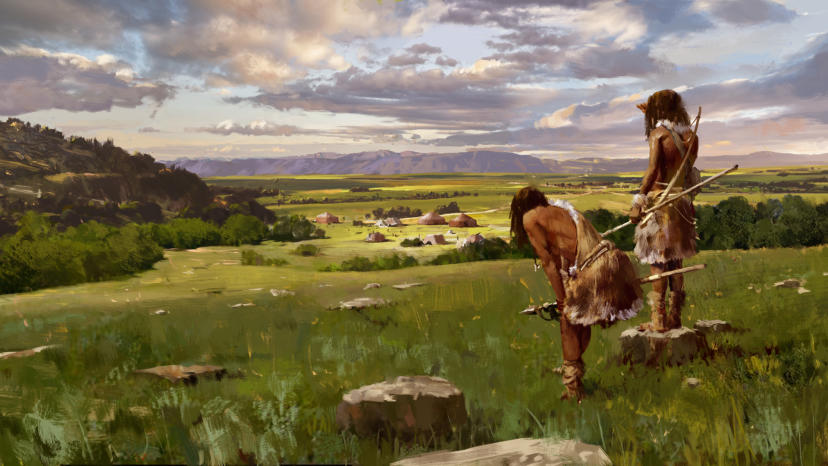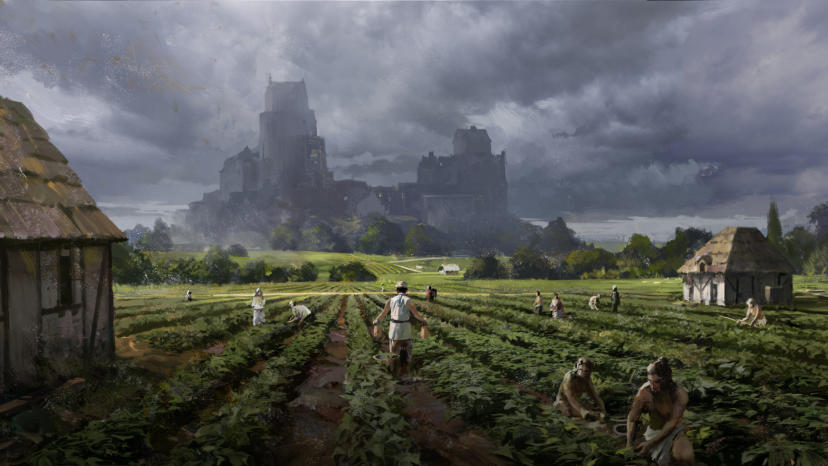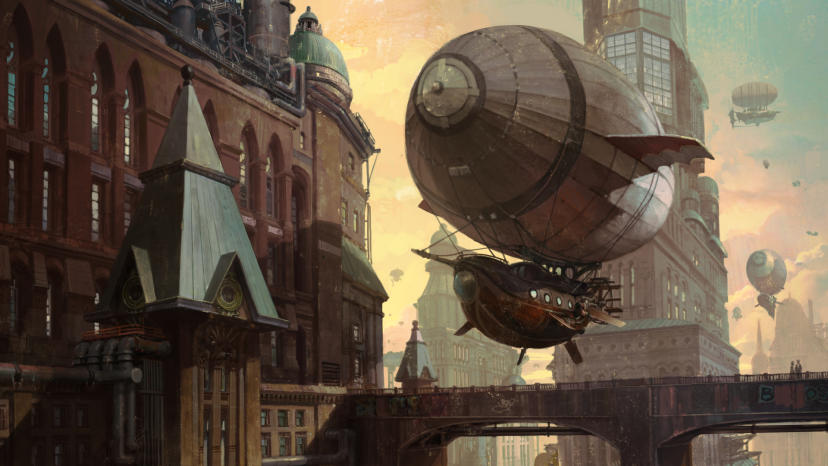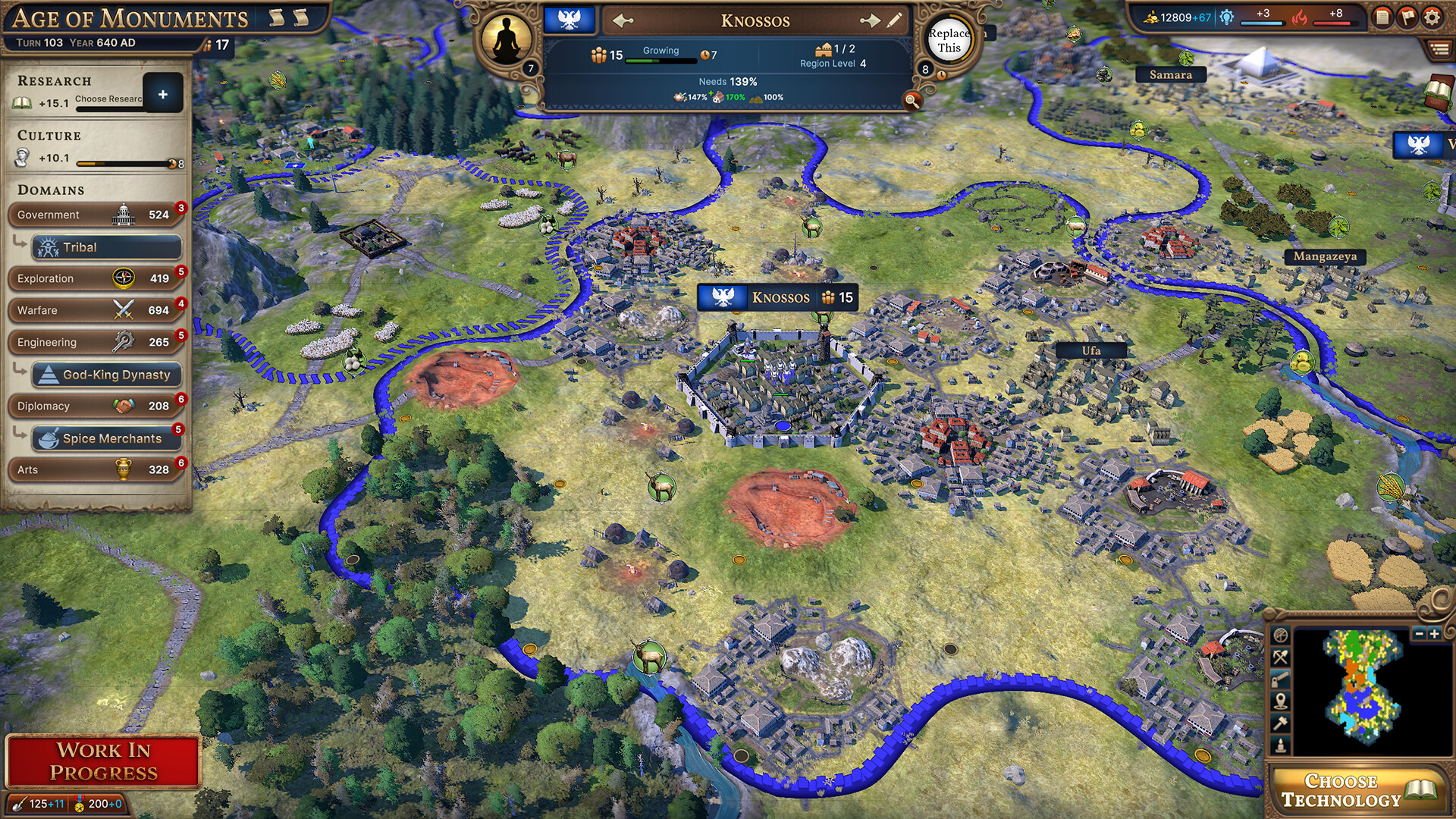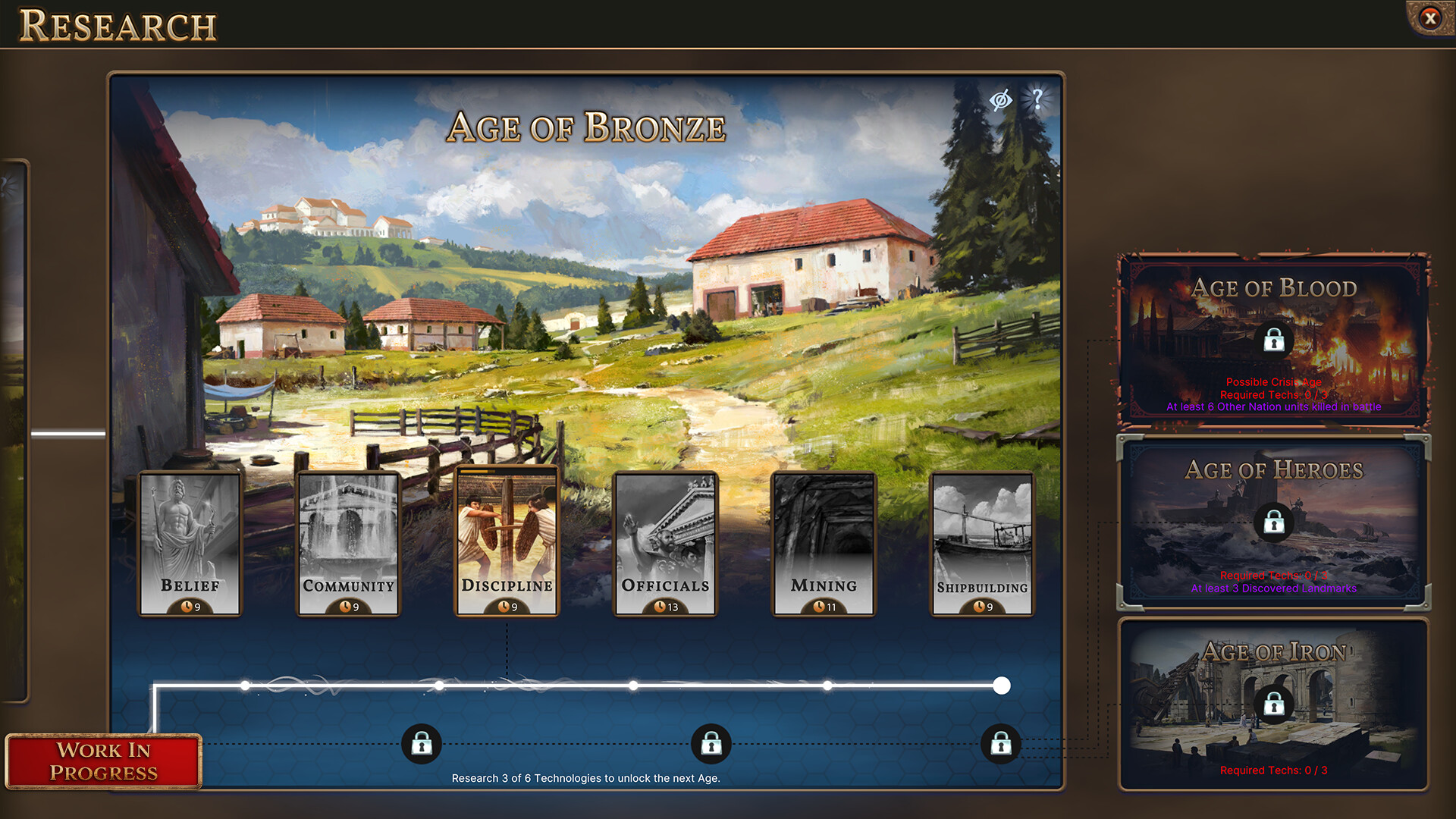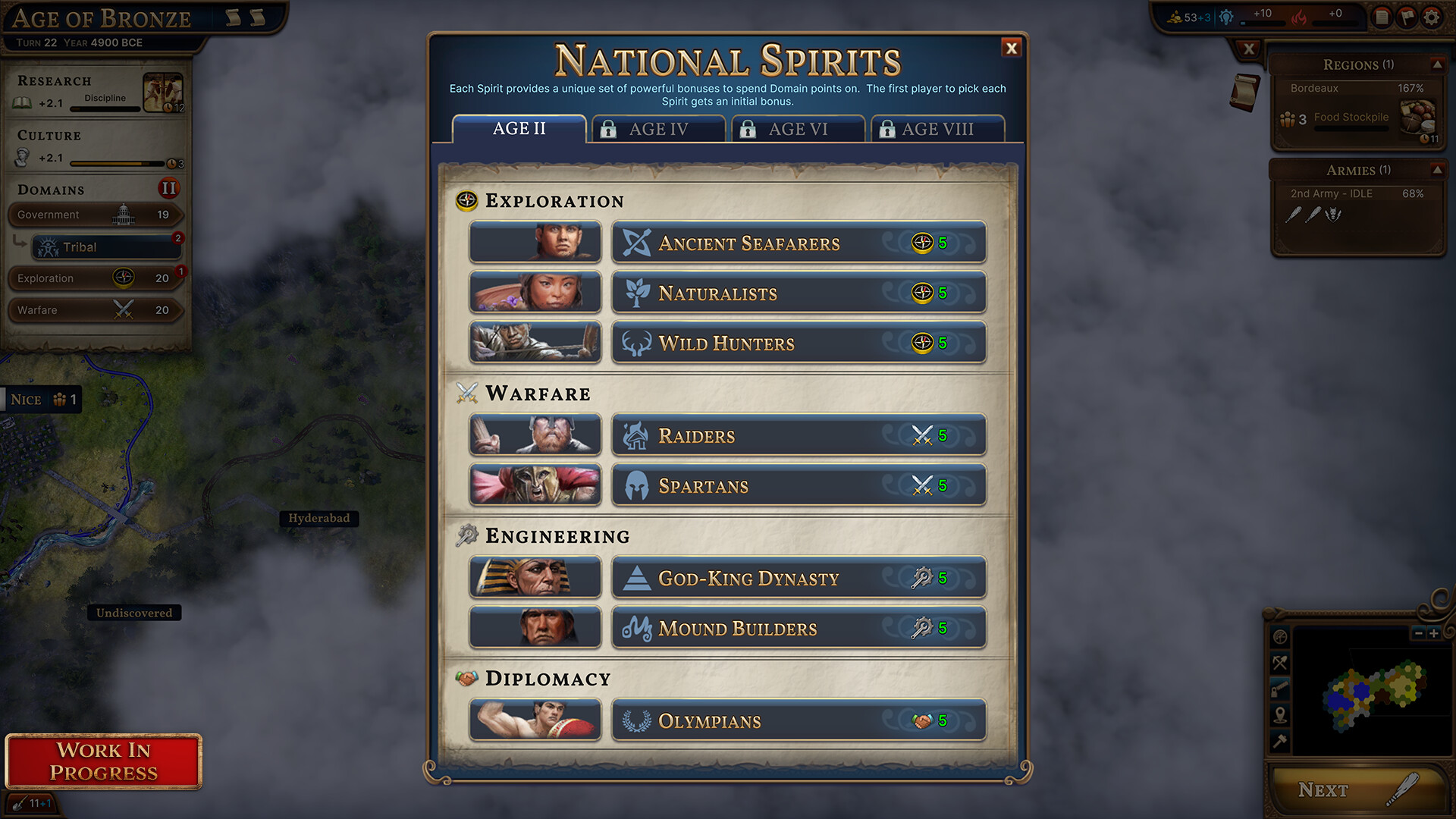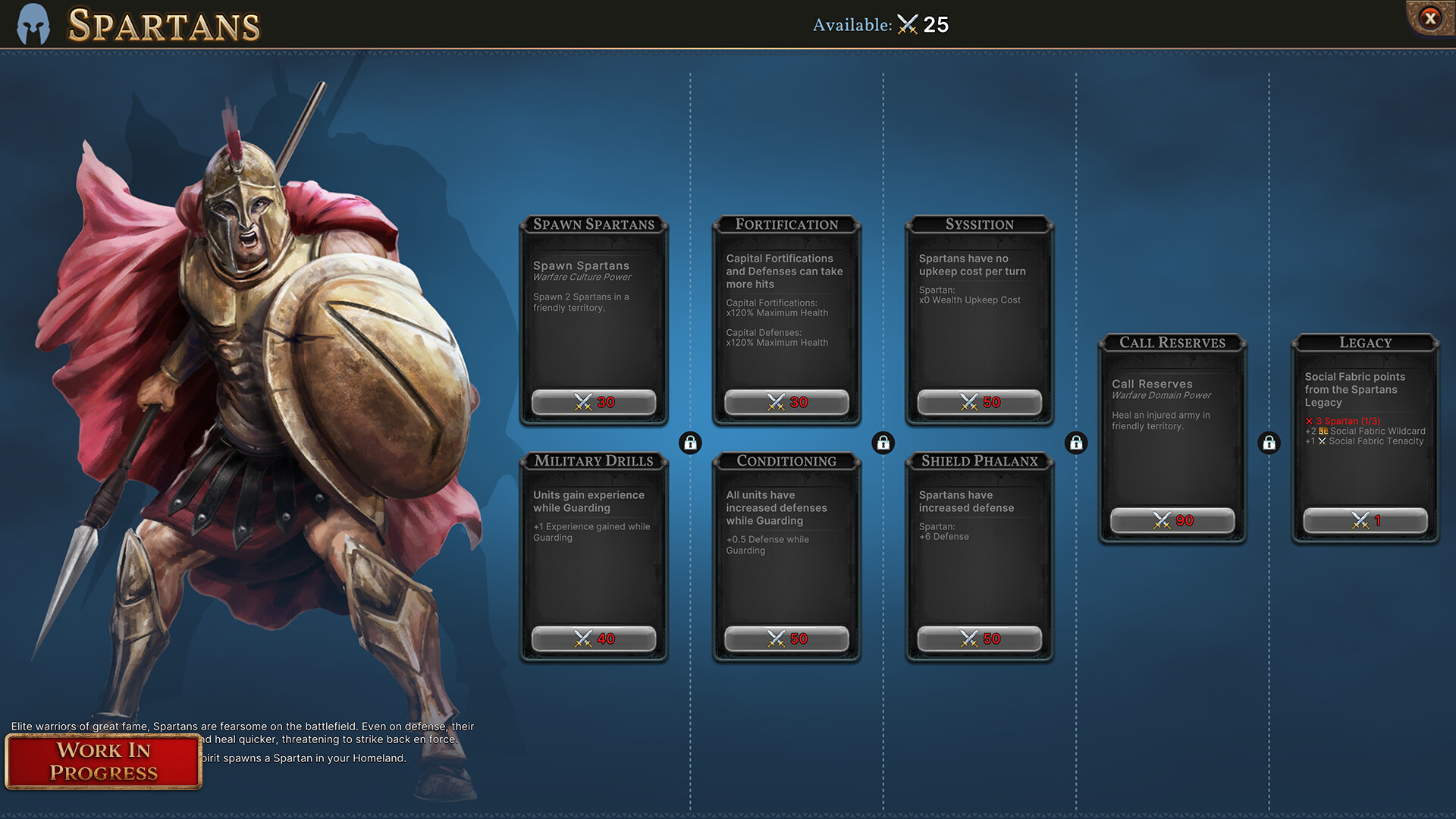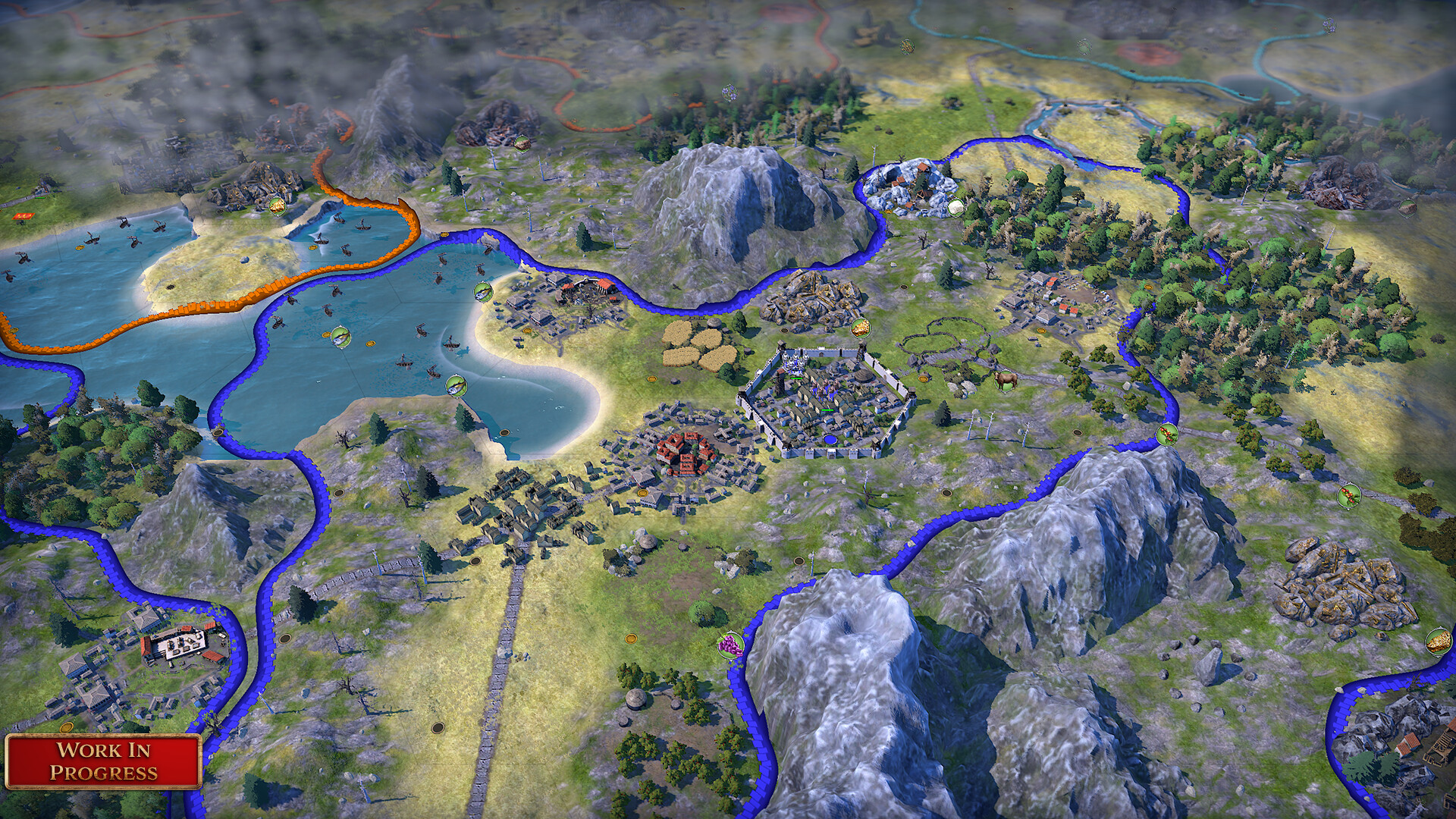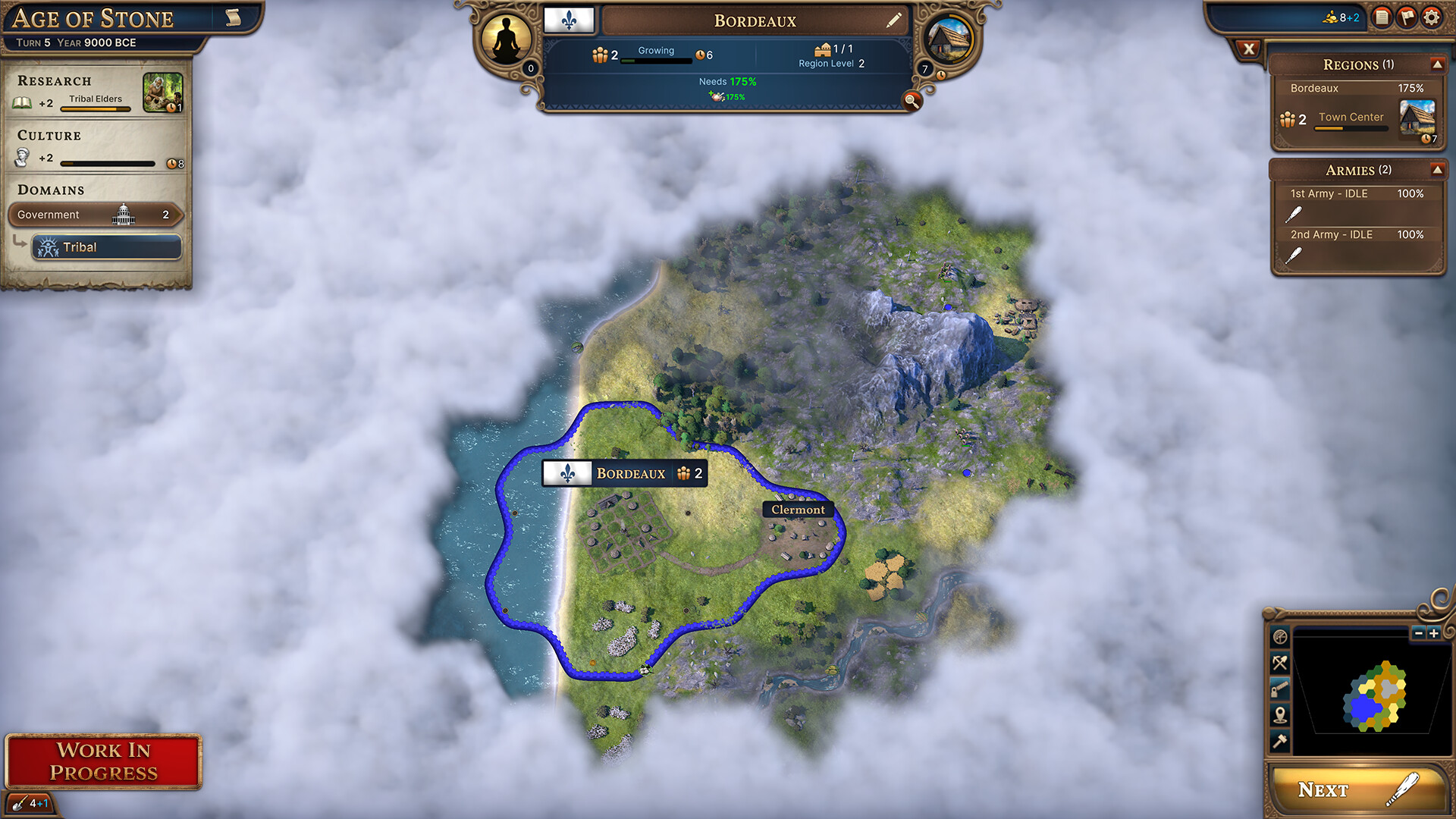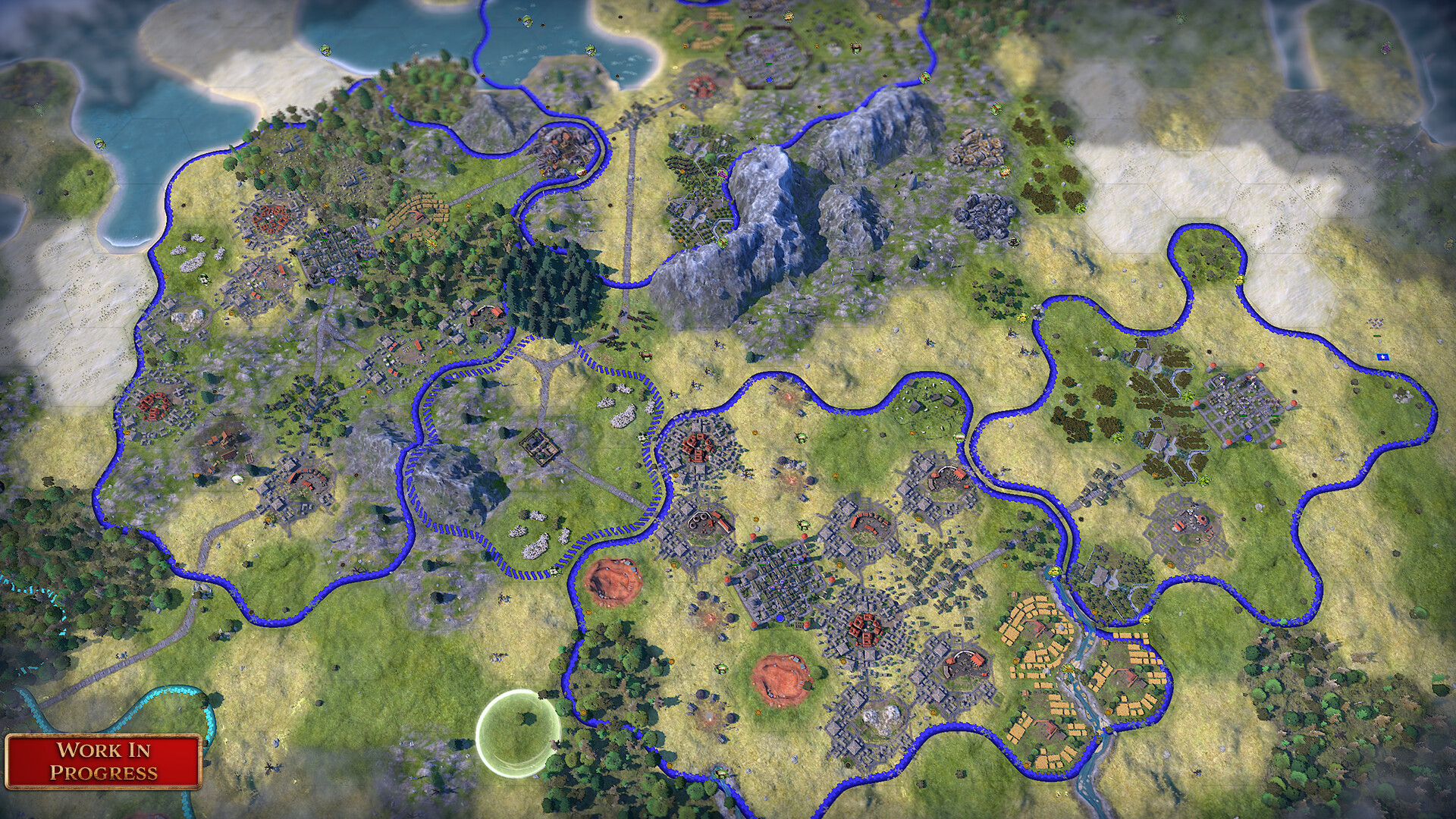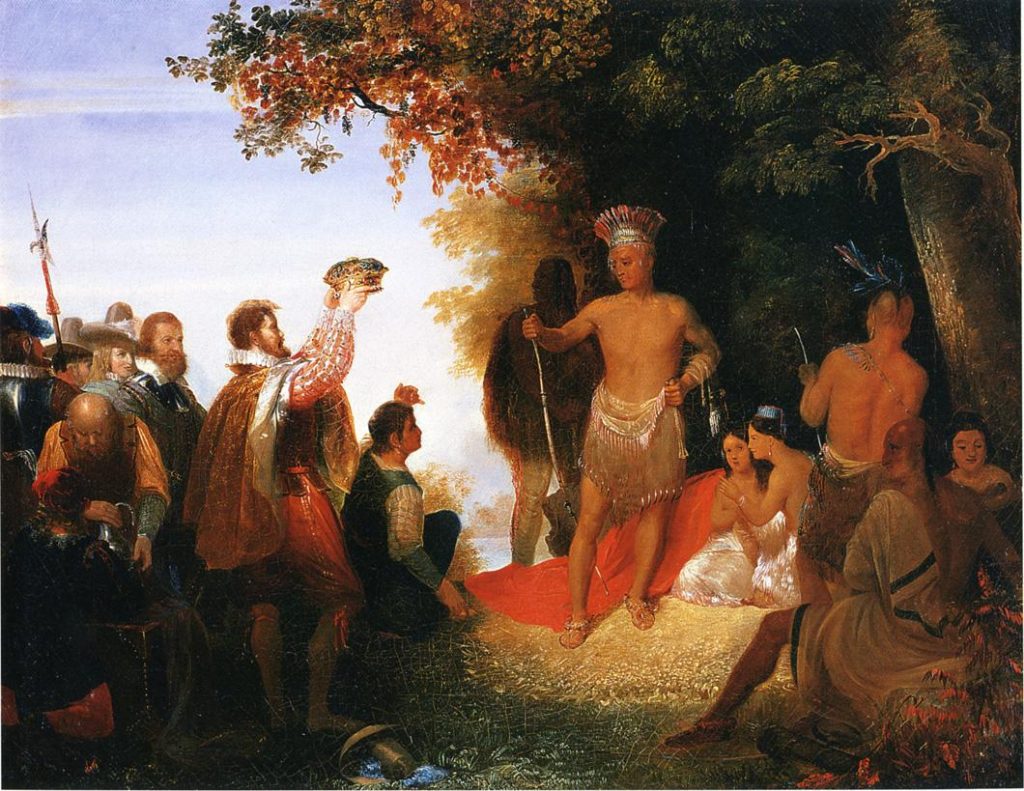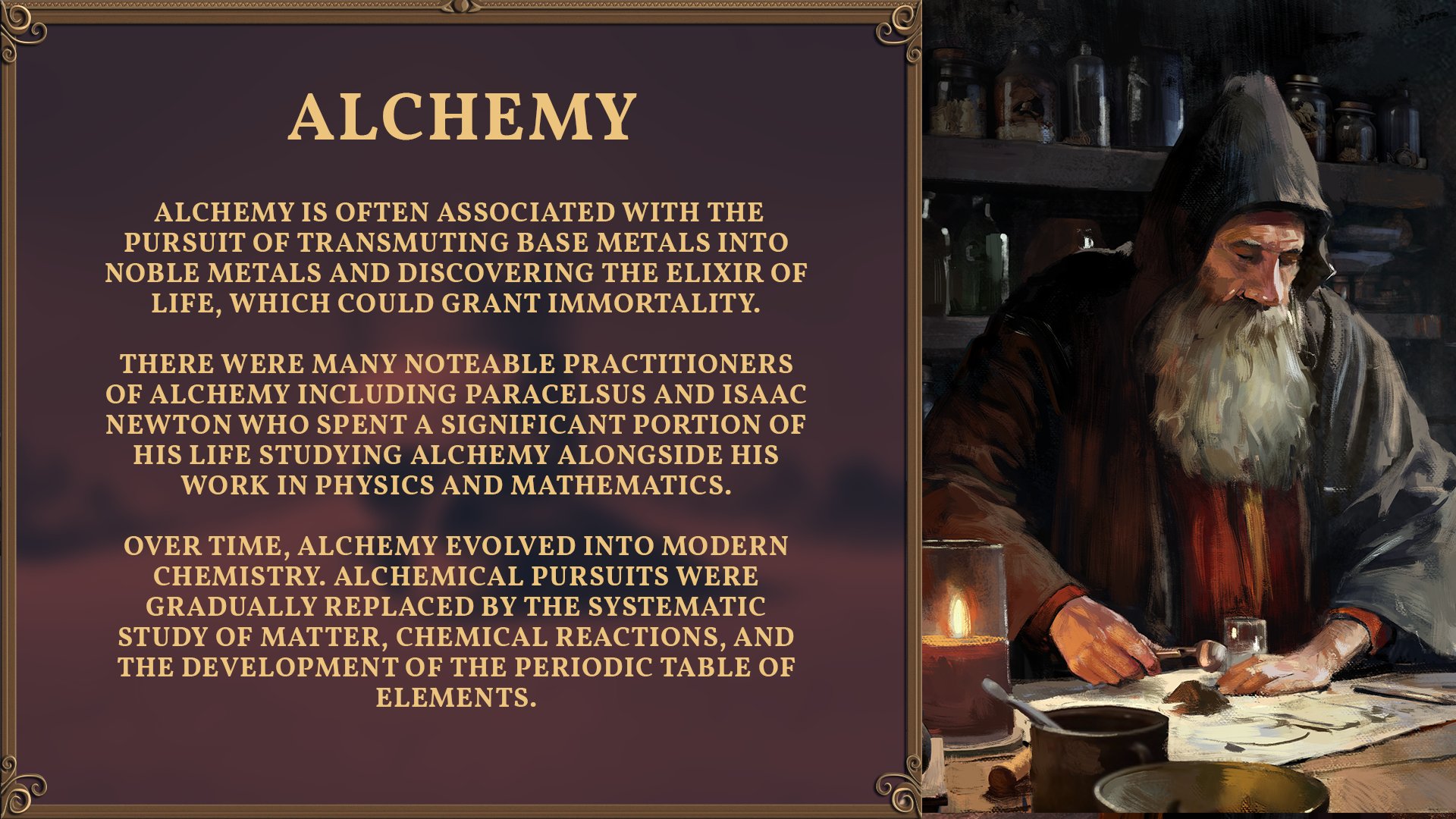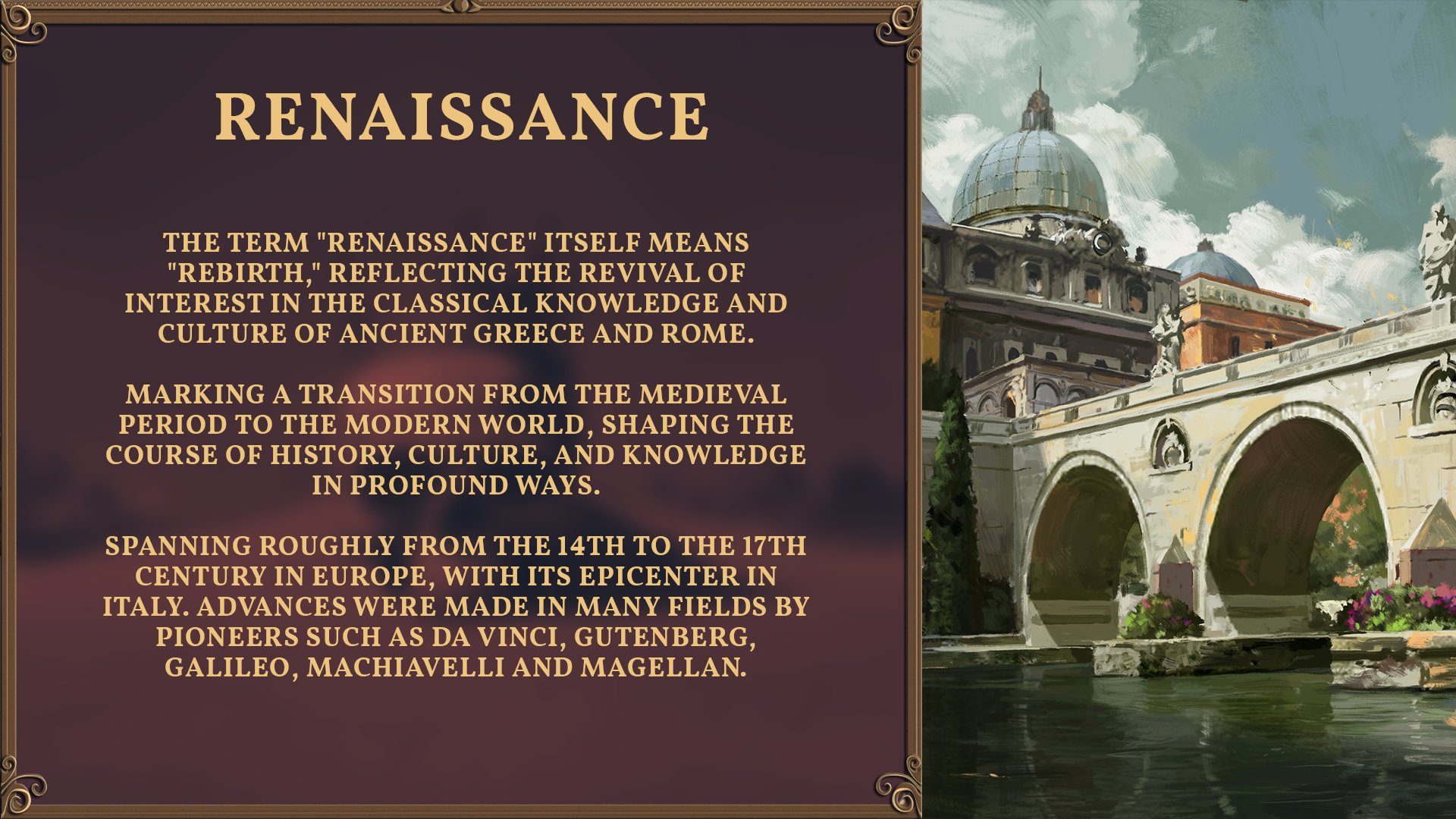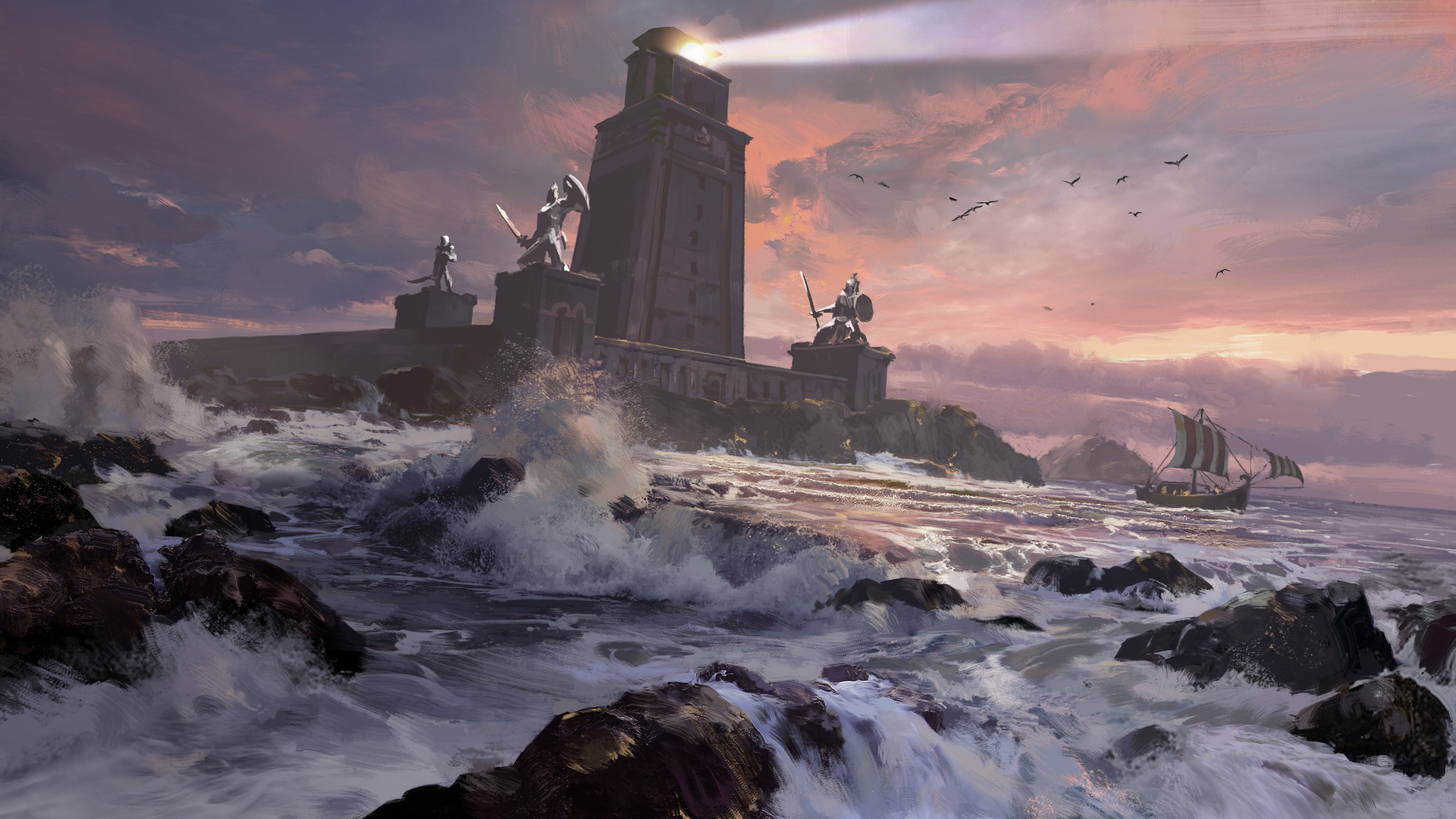 Developer Diary | Ages Part One
Developer Diary | Ages Part One
Hello! I’m Ben Friedman, a Game Designer at C Prompt Games, and I have the pleasure of presenting the next dev diary for Millennia! We’ve left some of you hanging with our allusions to the various Ages in our game, and now it’s time to go into detail about that.
Something that’s always been at the core of Millennia has been the ability to explore each era of human history and let the player toy around with what you might’ve done if you were there. People get excited talking about big “what-if” moments in history and our vision is to let you play through those possibilities. To do that, Millennia features a range of historical and alternate history Ages that create a sandbox for history. From there, you can explore Ages that involve “What if Rome never fell?” “What if steam power was viable?” “What if AI becomes sentient and takes over the world?”
To put these together, we were at a white board scribbling the most common and interesting “what-ifs” we could think of, coming at it from both what we thought were the coolest themes and also what we thought would be fun to play with. We quickly came up with way more Age concepts than we could build for the initial release so, for now, we’ve only built the ones we thought would be the most impactful and that we could make shine for launch.
Ages, Broadly
The timeline in Millennia is separated into 10 distinct Ages. Each Age houses a handful of Techs that unlock Units, Buildings, Improvements, and more. Unlocking each Age will both progress you through history and potentially expose you to these “what-if” alternate history timelines. The historical Ages have Technologies you’ll recognize, and the alternative history Ages have new Techs unique to that Age. The “What if steam power was viable?” Age has floating airships, steampunk machines, and more, just to give you a taste!

In order to progress from one Age to the next you’ll have to research a certain minimum number of Techs from your current Age and meet any additional requirements the next Age might have, then research the Age you want to advance into. Other players can see your progress on any Age advance research you start, and are alerted towards whatever Age research is closest to being completed. This might give you a chance to see what someone else is doing and race ahead to beat them to the Age you prefer.
 In the top-left, the Age progression warning appears
In the top-left, the Age progression warning appears
By progressing into a non-mainline Age, you diverge your game away from the historical known timeline, and into alt-history scenarios. We’ve chosen cut-off points in the timeline to break up our Ages that work both historically and are suited for alt-history. For example, if you choose to go into an Age like “What if Rome never fell?” it picks up right about when Rome was in decline, and an Age like “What if steam power was viable?” is right at home in the Victorian period. Due to all of the permutations, every game you play is going to be different because of which ages you link together.
These alternate history Ages take the place of the historical Ages, and that means you’ll sometimes miss out on something important from the main timeline in order to get something else unique from your alt-history Age. This variation leads to some wild games, and the system accounts for that by requiring you to return to the next historical Age after adventuring into an alternate history branch. That way you’re always in a known position when we present the next “what-if” question, and we know that you have the tools to rise to whatever challenge comes next.
However, the past influences the present (and future), so Units, Buildings, Improvements, Goods, and so on that came about because you went into a variant Age can change things farther down the timeline – just because you progress out of a variant Age doesn’t mean it stops having an impact on your timeline.
 These Ages are linked together in the timeline
These Ages are linked together in the timeline
When you research a new Age, you get a suite of Units, Buildings, Improvements, and more, just like any other Tech. By researching the Age of Blood, for example, you unlock the Berserker Unit that’s ready to lay waste to your enemies! (Which you’ll have a lot of in the Age of Blood.) If you’re the first person to enter an age, you also lock in that Age for the timeline. All other players will have to progress through the same Ages as you once the timeline is locked in. That makes the leading Nation an important role to maintain, as you get to choose which Technologies are available in your game.
Each Age also has a set of “Age Rules” that are enforced globally as long as that Age is the leading Age. Entering a new Age will replace the old Age Rules from the previous Age. The historical ages have more tame Age Rules that reward players for following patterns from known history, like building castles in the Age of Kings, but the alt-history Ages are where the Age Rules are more pronounced. The Age Rules for the Age of Blood forces every Nation to be at war with every other Nation, but also reduces the penalties associated with being at war. These Age Rules can make each Age more impactful than just the Technologies available. (So, you might want to pick an Age just because you can leverage the Age Rules in your favor.)
Types of Ages
If you want to diverge your timeline into an Age that you like, you’ll have to compete with all of the other Nations trying to do the same thing. Some Ages are easier to reach, some are harder, and some you’ll accidentally slip into.
Historical Ages don’t have any additional requirements beyond the minimum Tech requirement, and they tend to have more subtle Age rules. These follow a traditional historical route that will be familiar. There is plenty to do if you stay on the “known path,” there are fine strategies that involve trying to progress through the standard Ages timeline, but you’ll miss some of the fun of the alternate Ages.
Variant Ages are the primary place where “what-if” scenarios are explored. These have special requirements to unlock them, but you might meet those by accident because of your playstyle (or you might decide to go out of your way to steer into a Variant). Variant Ages tend to be somewhat equivalent to historical Ages, except their “what if” scenario bends the game, making it play differently. If your Nation is booming in the Age of Iron, it might be wise to push for the Age of Monuments next, instead of Kings, as Monuments offers unique Improvements that can help your Regions grow.
Crisis Ages are Similar to Variants, they have unique Units, Buildings, and other content to help you progress, but they also generally come with some horrible disaster that will challenge every Nation in the game. That isn’t always “bad”, if you’re well-suited to overcome the challenge, you might want to go into the Crisis just to make other Nations suffer (or you might want to go into the Crisis Age for a Unit or Tech you couldn’t get otherwise).
Another difference in Crisis Ages is that you are locked out of other Age options when you meet their requirements. You don’t necessarily have to enter the Crisis Age at that point, if you don’t want to, you could instead continue to research Technologies and bide your time, hoping that another Nation researches a different Age and sets the timeline to something else.
 Scary stuff
Scary stuff
Victory Ages are the last type of Age. These have a very high bar to meet, but if you can manage it, you gain the ability to win the game. The most common Victory Ages are the Age 10 Victories (every Age 10 option is a Victory Age). There are also some Victory Ages that are available earlier, which we call internally “off-ramp” Victory Ages. These were put in place to let you end a game early if you feel like you’ve gotten a firm lead and don’t want to pass 200 more turns just to see the Victory screen. But be careful when entering a Victory Age, as these just set the specific rules for winning. Anyone who meets the victory conditions can win, so don’t rest on your laurels just yet!
Historical Ages
As mentioned before, after you progress through an alternate Age you’ll return to the next historical Age, which means that at least half of the Ages you play in will be historical Ages. To best walk through what the historical ages are like, here’s a general description of how my games tend to go when sticking to just the historical ages.
(Note: most games will play differently due to the alt-history ages, different National Spirits, and another zillion granular choices you can make.)
Stone c. 10,000 B.C.E.
Despite being the first turn of the game, with only one Region and a few Units to control, there’s lots of decisions you need to make to get the ball rolling. I normally focus on building farms and keeping my Needs met at 200% as much as possible. I use my starting Warband Units to clear the fog of war around my starting area, supplemented by one or two Scouts I’ll build. I try to collect Reward Camps and stomp out any Barbarian Camps I see to hopefully get something helpful to rocket myself into a good position.
Bronze C. 5,000 B.C.E.
In the Age of Bronze, I’ll pick my first National Spirit based on what I think is going to be the most beneficial for me. Most of these National Spirits care about what terrain is nearby, but my go-to (with all factors being equal) is the Mound Builders NS because it helps me grow my population faster. I’m still focusing on keeping my Needs at 200% as much as possible, so I like to chain together my wheat farms with flour mills. Flour is so efficient that I can normally free up a spare worker that otherwise would’ve been on a farm to go work at a clay pit or forester Improvement and get some production flowing.
Iron C. 2,000 B.C.E.
I like reaching the Iron Age ASAP because I can reform my Tribal Government into a new Government. Which Government I pick depends on how my game is going, whether I have a lot of Vassals, or if I’m better off keeping my borders close-knit and just focus on keeping my Regions growing. By the Age of Iron, I also normally have a plan for how I’m going to get ahead of my neighboring Nations. If I’m lucky with the terrain near where I spawned, I can focus on investing in myself, getting my iron mines up and running, and continuing to chain together basic foods into more efficient refined goods. If I’m unlucky, I’ll have no choice but to invest in my military and train some Cavalry to harass my neighbors or try and steal an unprotected Vassal from them.
Kings C. 0 C.E.
In the Age of Kings, I like to upgrade my Outposts into Castles early to get the Age Rule reward for building Castles, and because it protects my Outposts from attacks. (I may or may not get into a lot of wars early on.) I can also found a Religion in this Age, but tend to wait on it instead of rushing in, because meeting the Faith Need is a bit trickier than other Needs, and not meeting the Need will result in an upcoming Crisis Age. The Age of Kings also has the Feudalism Tech which I tend to take first, because it makes my farms extremely efficient, and chaining together the mills and ovens to bake bread means I have loads of free workers to work other Improvements outside of just meeting my Needs.
Renaissance C. 1400 C.E.
Continuing down the path of known history, I arrive at the Age of Renaissance. You get a free Explorer Unit when you research this Age, which I use to go on Expeditions at Landmarks near my Regions. I’ll also upgrade any Scouts into more Explorers to help with the Expeditions. I tend to get the Navigation Tech quickly here, as it allows me to load up my land Units into Deep Water Transports, and send them across the deep blue sea. I want to know what’s going on at the other continents or islands, and I’ll either join a winning battle to steal a piece of land for myself from the losing side, or I’ll instigate conflict on my own now that my territory is safe on the other side of an ocean. Renaissance also reveals the Social Fabric system, which I’ll typically start with a few free points from the National Spirits I’ve taken, and I’ll focus on producing a lot of Domain Points to increase my Social Fabric Score to get the sweet bonuses.
Enlightenment C. 1650 C.E.
In the Age of Enlightenment, the game gives you the tools to really explode your Knowledge production and put it into high gear, but I tend to play it safe because there’s also a Crisis Age coming related to over-doing it and failing to meet the associated Education Need. I use this age as a cooling period to make sure all of my Regions have upgraded Improvements, their Needs are still being met, and I’ll spend my resources where I can to get all of my Regions to be powerful economic machines.
Revolutions C. 1800 C.E.
Knowing what I know about the game, I seek out locations early on in anticipation for the Age of Revolutions. Specifically, I look to claim as much Coal on the map as I can, even though it doesn’t have much use until now. Coal is a really cheap way to generate Power, to meet my upcoming Power Need. Power Needs for a Region comes from building “factory” style Improvements and other advanced Buildings, which I intend to do as soon as possible once I’ve unlocked them. The benefit for doing so is that I can assign multiple workers to each factory Improvement, and my smaller Regions can catch up to my Regions that control much more territory. Revolutions is a really important inflection point in the game, but is also one of the only historical Ages that comes with its own conflict built-in. When revolutionary Rebel units start spawning, I need to be prepared with my military to fend them off, which is why it’s good that I use the Age of Enlightenment to cool down my wars and bring my troops home.
ATOM C. 1920 C.E.
If I’m the first player to this Age, I’ll update my Government to whichever Government benefits me the most, but if I’m late to the party I’ll pick whichever Government allows me to join the most powerful Faction, so that I can ride their coattails and claw my way back into the lead. I also leverage the Space Race whenever I can, as the first player to complete it gets a nice reward for themselves and for their Faction, which can be the tipping point to get a high tier Faction Reward.
Information C. 1980~2030 C.E.
Once I hit the Age of Information, I have to start focusing on how I’m going to win. If I feel like I’m in a safe position relative to the other Nations, I enjoy heading into the riskiest Victory Age: the Age of Singularity. I take the Information Tech that unlocks the supercomputer Improvement, and build an unreasonable amount of them to summon the Rogue AI Crisis to end the game in a big firework final showdown.

